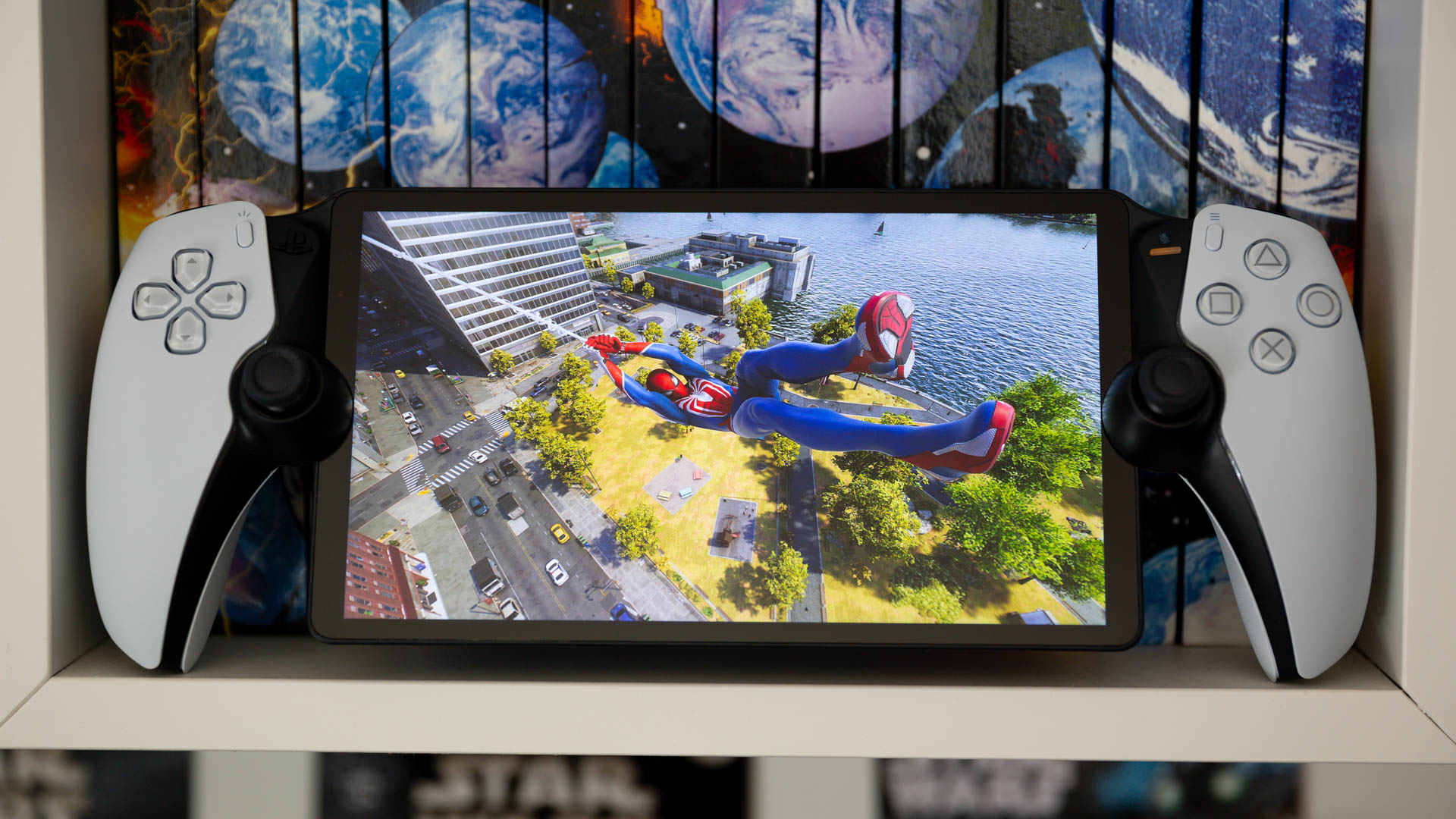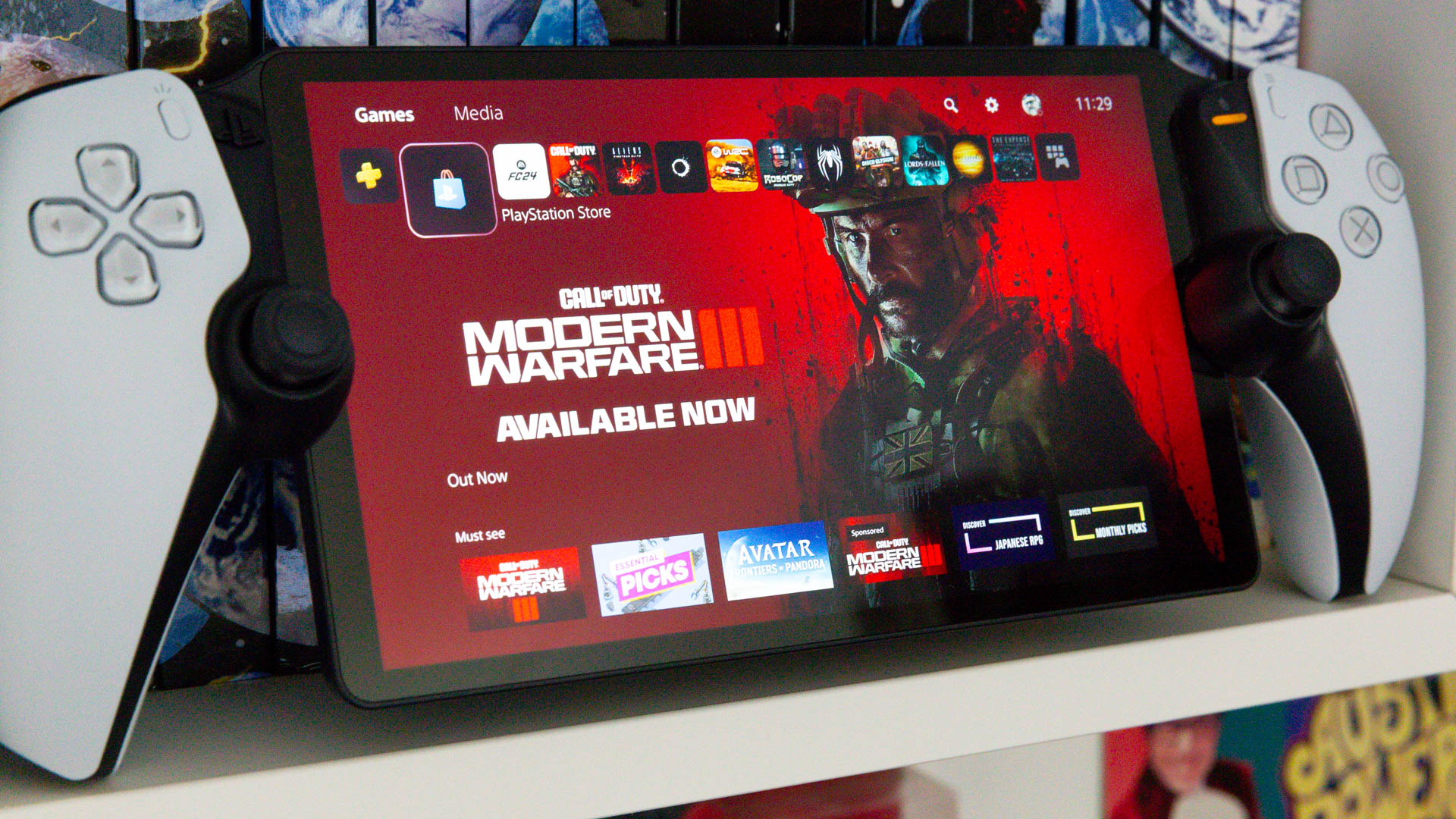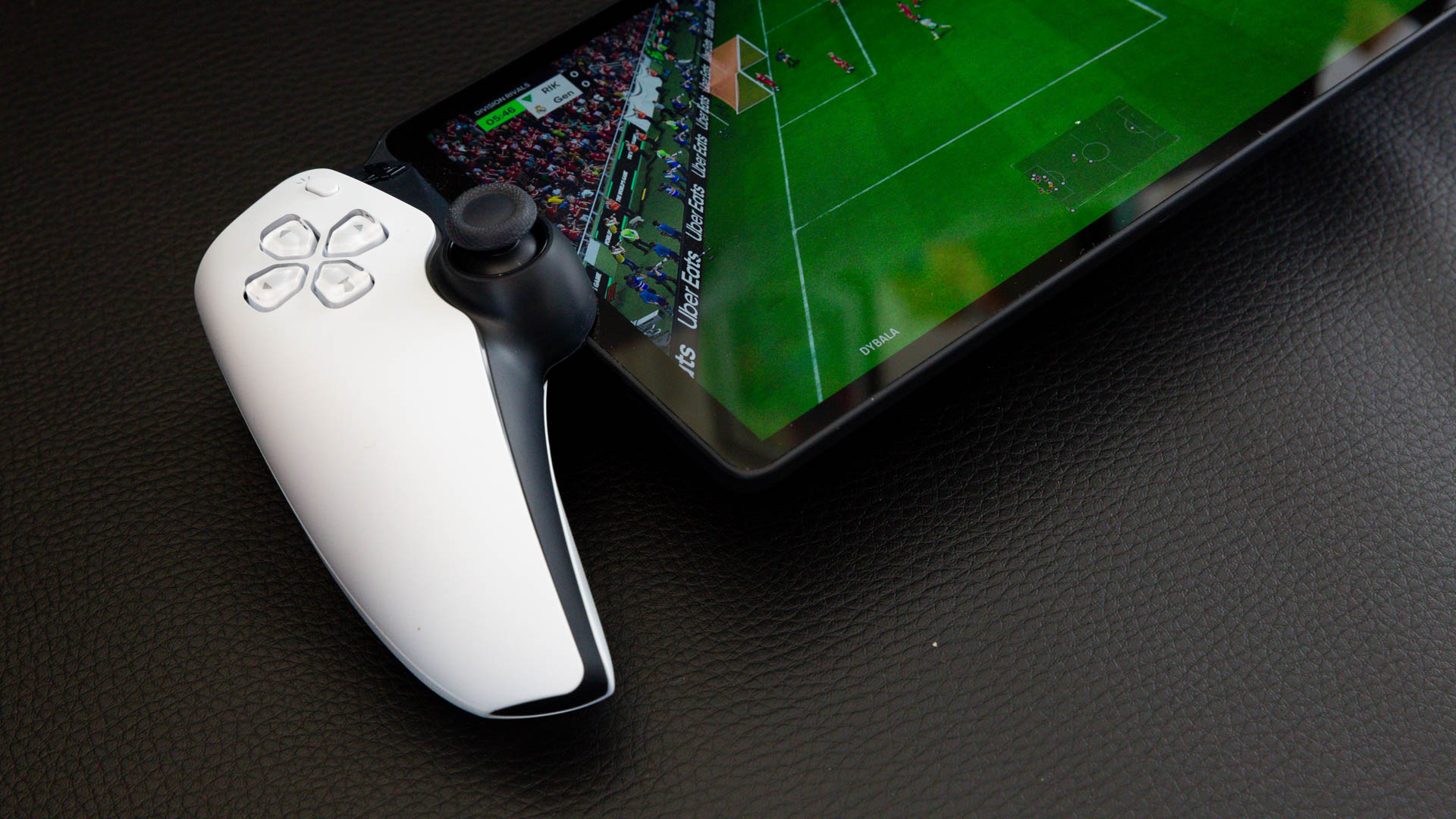48 hours with PlayStation Portal – here are 3 features I love (and 1 that's missing)
These are my initial impressions of Sony's new handheld


Get all the latest news, reviews, deals and buying guides on gorgeous tech, home and active products from the T3 experts
You are now subscribed
Your newsletter sign-up was successful
Sony pulled off a decent surprise when it announced the PlayStation Portal Remote Player earlier this year. While there had been a couple of rumours beforehand, the device it unveiled looked more like the company's answer to the Nintendo Switch, than a PS Vita replacement.
However, in reality it is a different beast entirely. The PlayStation Portal is not a handheld console at all – it is instead an accessory for the PlayStation 5.
It enables you to play games stored on your PS5 remotely when hooked up to your home network, something it's remarkably adept at. You can also stream over another Wi-Fi broadband connection or even when paired with a phone in hotspot mode.
I've had the chance to play with one for a couple of days as part of a lengthier review process. I'll publish my full thoughts in the coming week, but here's what I think of the PlayStation Portal as things stand.

That amazing, big screen
The first thing that strikes you about the PlayStation Portal – apart from the fact it looks like someone's cut a DualSense controller in half – is the screen.
The display is a mighty 8-inches and, even though it is LCD rather than OLED, it looks stunning when switched on. Colours are bold and saturated, while the contrast ratio is excellent for a portable device.
You don't get HDR and the resolution is just 1080p, but that doesn't matter when you're engrossed in a Call of Duty: Modern Warfare III or Marvel's Spider-Man 2 session.
Get all the latest news, reviews, deals and buying guides on gorgeous tech, home and active products from the T3 experts
I've always been a strong believer that, on smaller screens, you do not need a high resolution – the pixel density is enough to make images look sharp anyway. And, streaming 1080p video is more efficient than 4K – it enables more stable frame rates, which is more important for gaming.
In that, the Portal can stream at 60 frames per second and, in my tests over a home network, it mostly sticks to that. It'll depend on how many people are accessing your home Wi-Fi at once, but the results tend to be impressive.

The lack of latency
As you are streaming over your home network (more often than not), there is seemingly very little latency. That means the amount of time it takes for your PS5 to register a controller movement or button push and it streaming the action to your screen is nigh-on instant.
Cloud gaming often suffers a touch from latency issues, but I found the PlayStation Portal feels exactly as if I was playing on my own console.
There is a caveat to this – playing on a remote connection can add a touch more lag.
I haven't yet been able to test the PlayStation Portal on a different Wi-Fi network, such as in a McDonalds or at a family member's house, but I have attempted to play using the mobile hotspot functionality on my iPhone 14 Pro Max.
There was a little more latency for sure, but only as much as Xbox Cloud Gaming, say. Perhaps the more obvious trade-off was a drop in frame rate and pixel resolution – but then, I was using a 4G connection in a village outside London. Maybe if I had a 5G signal, it might have made a bigger difference.
Either way, the fact that I can use a mobile hotspot to play my PS5 games in a reasonable quality is testament to the device's versatility.

Feels like a DualSense
Some might argue that the PlayStation Portal is a pricy alternative to running PS5 games on an iPhone or Android device using the Remote Play app and a Backbone controller add-on.
In some ways they'd be right, but as well as the excellent 8-inch display I talked about above, the Portal has the bells and whistles afforded by a DualSense controller. That's something you cannot replicate with a third-party accessory.
That means you get haptic feedback and adaptive triggers – two things that make the DualSense one of the most innovative gamepads around. They also ensure that a PS5 game feels as accurate as it plays.
It's a shame that the touchpanel can only be replicated as an on-screen tap, but the ergonomics and tangible experience afforded by the Portal is spot-on in every other sense.
And now for something that's missing...
It's worth remembering that I've only had around 48 hours with the Portal so far, which is why my full review is yet to come, but there is one thing I instantly wish it brought to the table from day one – cloud access.
PS Plus Premium members have access to a growing library of classic and, more recently, AAA games that can be streamed over the internet rather than stored on your console. It seems a shame, therefore, that you cannot stream them to the PlayStation Portal directly.
If you had the option to stream games without needing to connect to your home PS5, it'd give you an extra option on how and when you play. And, it'd use less power as you wouldn't need to turn on your console (albeit remotely) just to use the handheld.
I suspect that we might see that functionality come to the Portal somewhere down the line. It'd also help justify its hefty price tag – maybe even encourage non-PS5 owners to purchase one and subscribe.
Nonetheless, as it stands, the PlayStation Portal Remote Player is an impressive, well-made accessory that I'm intrigued by. I'll need a bit more time with it to assess the many other aspects – such as battery life and durability – but I've enjoyed its company so far.
It will be available from 15 November 2023 priced at £199.99 / $199.99 / €219.99.

Rik is T3’s news editor, which means he looks after the news team and the up-to-the-minute coverage of all the hottest gadgets and products you’ll definitely want to read about. And, with more than 35 years of experience in tech and entertainment journalism, including editing and writing for numerous websites, magazines, and newspapers, he’s always got an eye on the next big thing.
Rik also has extensive knowledge of AV, TV streaming and smart home kit, plus just about everything to do with games since the late 80s. Prior to T3, he spent 13 years at Pocket-lint heading up its news team, and was a TV producer and presenter on such shows as Channel 4's GamesMaster, plus Sky's Games World, Game Over, and Virtual World of Sport.